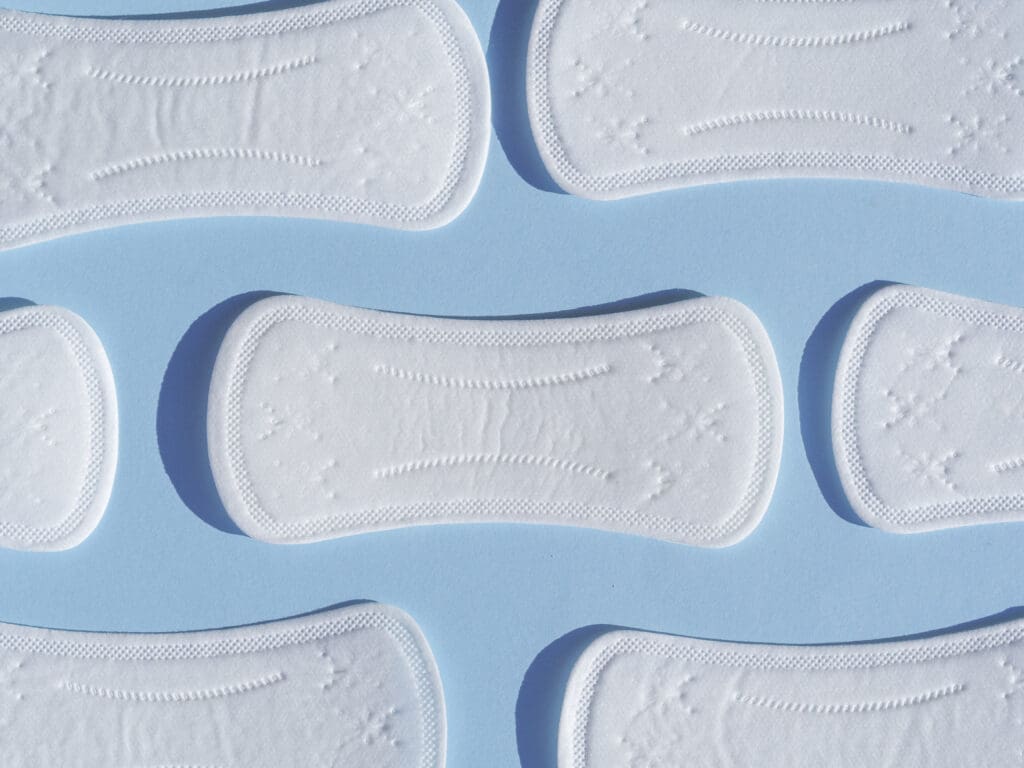
5 Simple Ways to Maintain Menstrual Hygiene Every Day: A Holistic Approach
Islam places great importance on hygiene – whether it’s of the body, mind, or soul. The Prophet Muhammad (ﷺ) strongly encouraged acts like brushing one’s teeth, trimming nails, and maintaining cleanliness regularly. These acts are not just daily routines, but they reflect our faith’s outlook on self-care that nurtures both our physical and spiritual well-being. Good hygiene plays a pivotal role in preventing illness and promoting overall health. In this blog, we explore five simple yet effective ways you can maintain menstrual hygiene every day!
Change menstrual products regularly
Whether you use pads, tampons, or menstrual cups, regularly changing is an important part of maintaining hygiene. This is because it helps avoid letting moisture build up, leading to rashes, infections, and unpleasant odours.
Here is a quick breakdown on how often you should change your products:
- Pads should be changed every 4-6 hours, even on light flow days, to maintain hygiene and prevent irritation. On heavier flow days, you may need to change more frequently – up to every 2 hours. If you find yourself needing to change pads more frequently than this or notice any unusual changes, it’s a good idea to consult a healthcare provider for further advice.
- Tampons should be changed every 4-8 hours – don’t wear a single tampon more than 8 hours at a time. If you can wear one tampon for up to 8 hours without changing, the absorbency may be too high – consider using the lowest-absorbency type.
- Menstrual cups can be used for up to 12 hours, depending on your flow. However, it’s essential to empty and sterilise them as recommended each day after use. Sterilisation, such as boiling the cup for the manufacturer’s recommended time, ensures it is fully clean and safe to use, preventing irritation or infection.
- Period underwear should be changed daily. Most reusable underwear are machine washable. Follow product directions on the best way to clean.
Wear light, breathable clothing
What you wear during your period matters more than you might think! Tight, synthetic fabrics can trap heat and moisture, creating an environment for bacteria to thrive. This can lead to discomfort and increase the risk of infections. Therefore, try to opt for cotton underwear and loose, breathable fabrics that allow airflow. These materials help to wick away moisture and keep the skin dry. This can help you feel fresher and more comfortable throughout the day.
Shower daily and gently clean
Did you know? Istinjāʾ is the practice of cleansing oneself after using the toilet, either with water or other permissible materials like stones or tissues. This method ensures that any impurities (najāsah) from the body are fully removed, specifically from the private parts. By performing istinjāʾ appropriately, Muslims can enter into the correct state of purity for engaging in acts of devotion, including prayer. You’re probably already confident with istinjā’, but here are some additional tips when it comes to intimate hygiene in particular!
Showering daily is a simple but essential step. In doing so, it’s essential to be gentle when cleaning the vulva (the external part of your vagina):
- Use warm water and a mild, unscented soap if necessary. Avoid harsh soaps and scented products, as these can irritate the sensitive skin around your vulva and disrupt your vagina’s natural pH balance.
- Wipe front to back. This will help avoid spreading bacteria from the anus to the vagina, which can lead to infections.
- Remember, the vagina is self-cleaning! It does not need any internal washing or douching, which can actually do more harm than good. Use only your hands to clean the vulva rather than clothes, sponges, or cleaning tools, which can cause irritation or introduce harmful bacteria.
- Avoid over-cleansing or washing the area more than once a day, as this can disrupt the natural balance of bacteria and potentially harm your vaginal health.
Avoid scented products
Scented hygiene products, like pads, tampons, or toilet paper, may seem like they’ll help keep you fresh, but they can do the opposite. These products often contain chemicals that can irritate the skin and throw off your vagina’s natural balance, leading to infections such as bacterial vaginosis (BV) or yeast infections. Stick to unscented and chemical-free products to maintain your vaginal health and avoid any unnecessary irritation.
Quick tip: If you’re using wipes during your period, choose unscented and alcohol-free ones to avoid irritation. Your body knows how to take care of itself – sometimes, less is more!
Stay hydrated
Drinking plenty of water is powerful for vaginal health. It keeps your vaginal tissues lubricated and moist, which reduces the risk of irritation and infection. It also helps flush out bacteria from the urinary tract before infections can flare up. Hydration also helps reduce bloating and fatigue, making you feel more comfortable. So, make sure you’re getting enough liquids throughout the day to keep your body running smoothly!
Reflect: In Sūrat al-Anfāl (8:11), Allah ﷻ speaks of sending down rain to purify us. Water is a precious gift. One of its most important uses is to drink – something for which we should be deeply grateful!
Bonus tip: regular health check-ups
Maintaining menstrual hygiene goes hand-in-hand with looking after your overall reproductive health. Therefore, we highly encourage you to visit your healthcare provider regularly for wellness exams. This includes screenings such as:
- Cervical smear test (Pap smear) to detect early signs of cervical cancer.
- Pelvic exam to check for abnormalities in the reproductive organs.
- Breast exam to detect any signs of breast cancer or other concerns.
Regular check-ups are key for catching health issues early – prevention is better than cure!
Final thoughts
In Islam, cleanliness holds deep spiritual significance. Our bodies are a trust from Allah ﷻ, deserving of much care and respect. By staying mindful of these five practices, you honour your body, uphold an act of worship in your daily routine, and foster a healthier and more balanced life!
Reviewed by Dr Hussain

